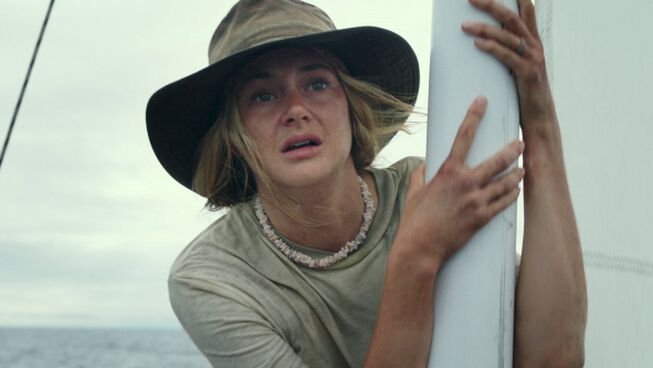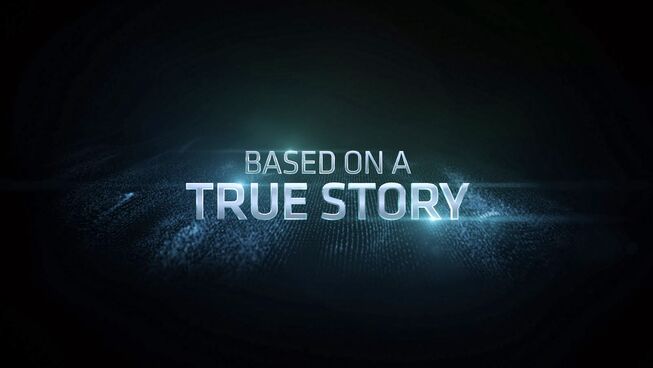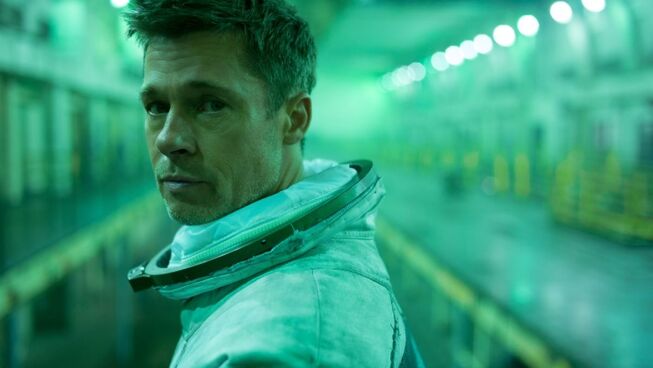
2 out of 5 stars
Early this year The Mercy sailed into theatres with Colin Firth sailing through the tragically true journey of Donald Crowhurst as he chose to race a sailboat around the world in 1968. This tale is a familiar journey of difficulties and challenges at sea and proves to be one of the most depressing stories in cinemas this year. What this film provides is a reason to never take a sailboat across the ocean or to avoid movies that venture into this subject matter. Despite this ill-fated wish, Adrift, washes into theatres with a glimmer of hope that it has something more to add to this weather-beaten genre.
Audiences are introduced to Tami Oldham (Shailene Woodley) as the young lady arrived in Tahiti in 1983. With an innocent adventure in her eyes, the young wanderer never could realise how her life was to change irrevocably with her introduction to Richard Sharp (Sam Claflin) and his love for the sea. Even though she had been a cook on a yacht, Tami had an undeniable desire to discover all the world had to offer. This spark in life was fanned into a flame by her love affair with the young British sailor and it led to the journey across the Pacific in the Hazana that pushed her to the limit of the human experience.
She met Richard while working on the docks cleaning boats and their love grew while they lived on the beautiful island nation. While they discussed the next destination of their relationship and world travel, the couple is offered a handsome financial package to sail a beautiful yacht to San Diego by one of Richard’s friends. As they take on this lucrative opportunity, they enjoy the majesty of the ocean and the life of solitude on the water until they sail into hurricane Raymond. The storm leaves the boat wrecked, both of the travellers significantly injured and finding themselves adrift at sea with little more than their wits about them and the hope of being rescued.
The opening of the film finds Shailene Woodley immersed inside the wreckage of the Hazana and desperately searching for her love amongst the waves. Then by a small miracle she finds him on the yacht’s small dinghy and brings him back on board the boat, even though he is incapacitated because of severe injuries. Initially, it seems to be an odd place to introduce the characters, but director Baltasar Kormákur (Everest) manages to tie the film together through flashbacks that explain the couple’s romance and how they ended up on the stranded 44-foot yacht. The flashback scenes on Tahiti do provide backstory, but set a lethargic tone to the film that it never recoves from in the end. Woodley and Claflin do provide chemistry, but the writing does not deliver much passion or excitement until they begin their seafaring adventure.
The scenes during the hurricane do add the expected action, but the remaining time becomes one exasperating moment after another. Even though the flashbacks do provide a bit of a reprieve from the sheer boredom associated with floating in the ocean, there is nothing that this story adds to films of this ilk. There is something to be said about the strength of the human spirit, but the majority of the film proves to be an arduous journey on the high seas that demonstrates once again that air travel is a better option to get across the oceans of the world.
Reel Dialogue: Wouldn't life be better if we did not have trials?
Throughout our life on this earth, we strive to find comfort and seek after the least painful means of living. From pain medication to air-conditioning, life in the western world can be relatively pain-free, but is this the true ideal?
Looking back at history, mankind continues to prove that trials can bring out the best in us. Few people seek out difficulties in their lives because they come without having to look for them. When confronted by these challenges, the personal development and testimonies generally show what individuals have within themselves. This is evident in biblical history, also. Each book of the Old Testament and New Testament show that life tribulations can provide true growth for the people of the past and these lessons can be a gift for us today. This is epitomised in the life and times of Jesus whose painful end brought forward the answer for all of our difficulties.
And after you have suffered a little while, the God of all grace, who has called you to his eternal glory in Christ, will himself restore, confirm, strengthen, and establish you. 1 Peter 5:10







